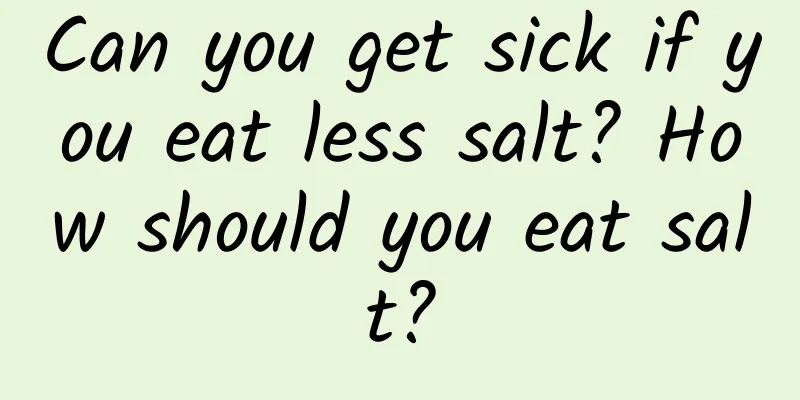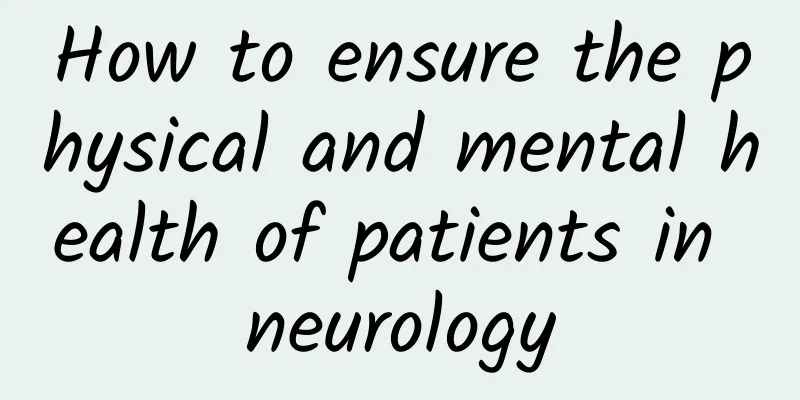Can you get sick if you eat less salt? How should you eat salt?

|
In daily life, we often hear the older generation say: eating light food is good, eating too salty food is unhealthy. And on the Internet, there are also many doctors and popular science up masters who point out that a high-salt diet is unhealthy and advocate a low-salt diet. So, is a high-salt diet really unhealthy? Is a low-salt diet necessarily healthy? 1 Familiar yet unfamiliar salt Table salt mainly refers to sea salt, well salt, rock salt and other daily edible condiments. Its main component is NaCl, which accounts for more than 90%. Table salt also contains other compounds such as barium salt, sulfate, chloride, magnesium, zinc, etc. Source | pexels Salt plays an important role in Chinese history. Looking at Chinese history, we can find that from the Qi State during the Spring and Autumn Period and the Warring States Period to before the founding of New China, the salt monopoly system has always been one of the important means for the feudal ruling class to exploit the people. The huge profits brought by the salt monopoly provided convenience for the feudal rule to plunder the wealth of the people. So why is salt so important? Source | pexels First, in ancient times when food preservation technology was not well developed, salt was an important way to preserve food; second, the importance of salt to the human body made it a strategic material. Salt participates in the regulation of acid-base balance in the body. The bicarbonate formed by sodium ions and bicarbonate ions is a buffer that can maintain pH stability. Chloride ions also participate in a balance between plasma and red blood cells. When bicarbonate ions penetrate from red blood cells, anions in red blood cells decrease, and chloride ions enter red blood cells to maintain electrical balance. A lot of salt is often added to pickled foods. Source | A shopping website In addition, the formation of gastric acid is inseparable from the participation of chloride ions. The main component of gastric acid is hydrochloric acid HCl, and the main source of chloride ions is salt, so insufficient NaCl intake may lead to indigestion. Salt plays an important role in maintaining the normal excitability of nerves and muscles. When excited, it is transmitted along nerve fibers in the form of electrical signals, and the changes in the potential inside and outside the cell membrane are inseparable from the participation of sodium ions and chloride ions. Source | People's Education Press High School Biology Textbook In ancient times, table salt was a luxury for ordinary people. Most people could only afford earth salt. The so-called earth salt is salt dug from saline-alkali land. It has not been filtered and purified, and is mixed with impurities such as soil, and has a terrible taste. 2 Salt is important, high salt levels are dangerous Since the founding of New China, the price of salt has dropped, and everyone can afford clean salt. In the past, most people did physical work and sweated a lot, so they had to consume a lot of salt to keep their bodies strong, which led to many families still liking salty food. But do you know what harm eating too much salt can do to your body? Excessive salt intake may cause: 1. Upper respiratory tract infection: Studies have found that excessive salt intake can lead to a decrease in the defense capabilities of oral and ocular epithelial cells, reduce the secretion of oral saliva, and keep the mouth dry, making it easier for viruses and other pathogens to invade oral epithelial cells, leading to oral ulcers. Source | pixabay 2. Damage to gastric mucosa: When excessive sodium chloride enters the stomach, the osmotic pressure of gastric juice is much greater than that of gastric wall cells, which causes the transfer of water in the gastric mucosa, thereby causing damage to the gastric mucosa. It can also change the nature of the mucus secreted by the gastric mucosa, reducing the protective effect of mucus on the gastric mucosa, making the gastric mucosa more susceptible to damage by food components and bacteria, which may cause diseases such as gastritis and gastric ulcers, and cause discomfort symptoms such as upper abdominal pain and nausea. Source | 360 Encyclopedia 3. Cardiovascular and cerebrovascular diseases: Excessive intake of salt can increase the plasma osmotic pressure in the body, causing cell dehydration, increasing blood circulation in the body, and long-term high-salt diet can easily cause high blood pressure. For people with underlying cardiovascular diseases, excessive intake of salt may induce heart failure, myocardial infarction, stroke, etc. 4. Impaired kidney function: Excessive intake of salt can cause water and sodium retention in the body, increase the burden on the kidneys, and easily cause edema. For those with underlying kidney diseases, consuming a large amount of salt may lead to further deterioration of kidney function. In addition, excessive intake of salt may cause excessive sodium ion content in the body, leading to cell dehydration, dry skin, wrinkles and other skin problems, usually manifested as unbearable thirst. If excessive salt is consumed at one time, it will cause a serious imbalance in osmotic pressure, which will seriously threaten life. 3 Be cautious when taking low salt, control and follow doctor's advice Some people may say that eating too much salt is so harmful, so why not just eat less or even not eat it? Well, that's not the case. If you don't eat enough salt, the harm is not small either. Low salt intake may cause: 1. Table salt contains a large amount of sodium ions, which are indispensable to the human nervous system. Muscle contraction and heartbeat are related to sodium ions. Therefore, when the human body lacks salt, the nervous system will be very weak, showing weakness in the limbs. In severe cases, vomiting, increased heart rate, weakened pulse, muscle cramps, blurred vision and other symptoms may occur. Source | pixabay 2. Long-term insufficient intake may lead to goiter. At present, most of the salt sold in the Chinese market contains iodine. Iodine deficiency can lead to goiter, which is commonly known as goiter. Therefore, too little salt intake can also easily lead to insufficient iodine intake, especially for people in inland areas who do not consume enough seafood. Source | Tencent News 3. Decreased appetite. Salt is the most important condiment in our diet, and it can stimulate saliva secretion. Therefore, foods with high salt content are more likely to make people hungry, while dishes with less salt or no salt may not be so popular, and they always feel that they taste a little bit worse. In addition, if the intake of sodium ions is too low, it will lead to acid-base imbalance in the body, affect the secretion of gastrointestinal digestive juices, and weaken the activity of pepsin, thus causing indigestion and further affecting appetite. 4 Healthy life, salty and light The importance of salt is beyond doubt. We should not overeat because of its importance, nor should we stop eating because of the harm caused by excessive intake. If we want to ensure a normal and healthy life, we must learn to consume salt in moderation. In my country, residents generally consume excessive amounts of salt every day. According to the Dietary Guidelines for Chinese Residents, the average person should consume 3 to 6 grams of salt a day, which is about the amount of a bottle cap. However, most residents in my country consume about 10 grams of salt. Spicy noodles, biscuits, fried chicken, bacon, instant noodles, etc. that we usually eat all have high salt content. You should also pay attention to your health when enjoying delicious food. Source | pexels According to Reuters, high blood pressure and cardiovascular and cerebrovascular diseases are all related to a high-salt diet. Given my country's national conditions, most people need to reduce their salt intake. Of course, it depends on the specific situation. If you are really worried about the amount of salt you consume, you can consult a doctor for advice. |
<<: Can smoking relieve loneliness? Experts: Loneliness may worsen
>>: When people reach middle age, their bodies become more and more round. What's going on?
Recommend
Tips on medication for COVID-19 | "Diarrhea strain" strikes, montmorillonite powder is out of stock overnight... Do you believe these rumors?
The New Year’s bell of 2023 has just rung, and th...
Intermittent spotting during breastfeeding
The lactation period is a very important period. ...
What to do if you get pregnant again two months after abortion
The neighbor's daughter-in-law had an abortio...
Normal range of fat percentage for women
What is the standard body fat percentage for girl...
How to make pig heart soup for pregnant women
As a woman's pregnancy progresses, her body w...
Six must-haves for a healthy vagina
The female external genitalia has a complex struc...
Vaginitis is never good
When female friends suffer from vaginitis, it is ...
What is the significance of changes in body temperature during the menstrual cycle?
I believe many people have noticed the changes in...
Why is wax apple called hemorrhoid fruit? When does wax apple ripen?
The wax apple has a beautiful shape and bright co...
A small capsule that can sense your heartbeat at all times!
Author: Shi Xiangqi and Li Chuanfu With the rapid...
How long after cervical smear can I have sex
For many people, especially women, physical healt...
How to resume exercise after cesarean section?
Nowadays, more and more women choose cesarean sec...
How to maintain the uterus and ovaries after abortion?
With the continuous improvement of living standar...
What are the main items of cervical mucus examination?
Cervical mucus examination is a routine gynecolog...









